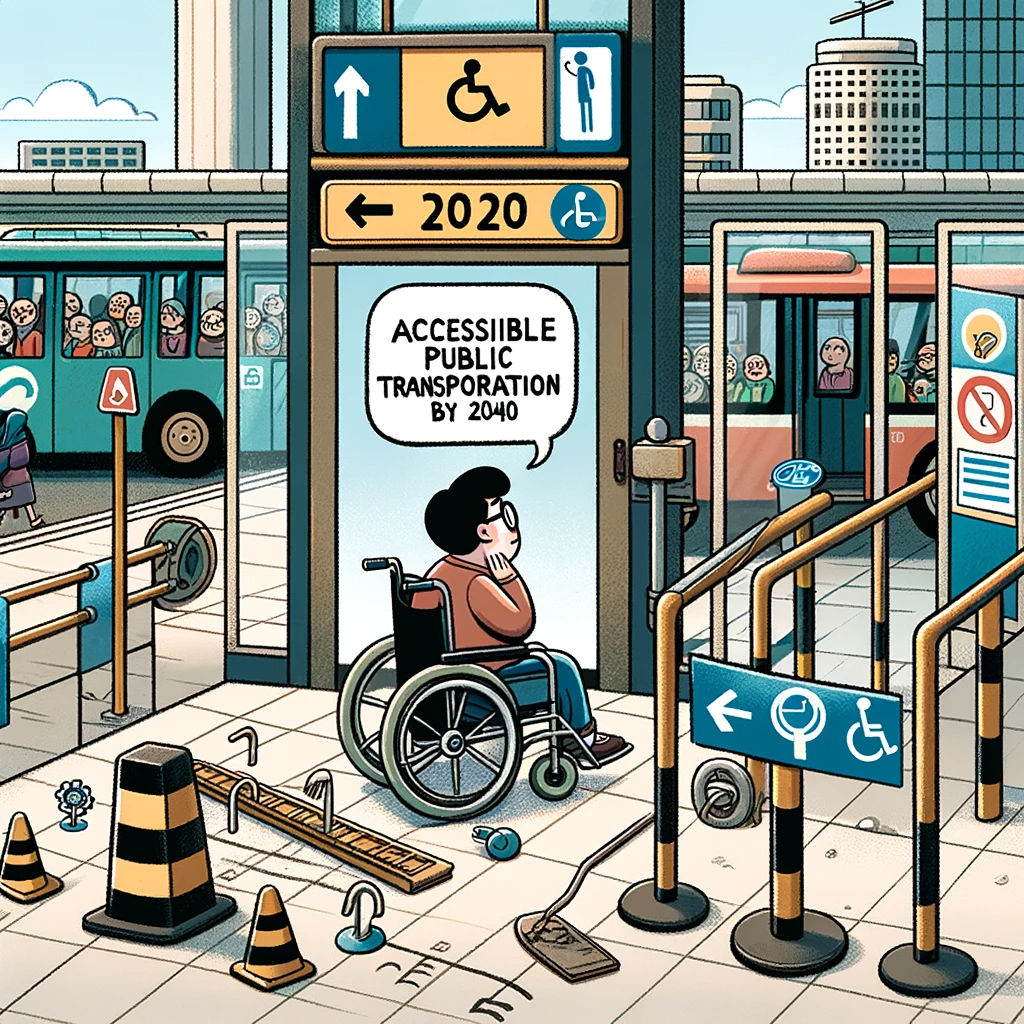Equal access to transportation remains a distant dream for people with disabilities.
From a recently published investigation report from the Netherlands Institute for Human Rights shows the worrying status of public transport (OV) in the Netherlands, especially with regard to accessibility for people with disabilities. The report emphasizes that accessibility in public transport is not just a matter of comfort, but a fundamental right that is directly linked to the independence and social participation of people with disabilities.
The Institute points out that the UN Convention on the Rights of Persons with Disabilities obliges the Netherlands to take appropriate measures to ensure that people with disabilities have equal access to transport. This access is essential for the exercise of human rights such as the right to health, work, leisure and private life. However, problems such as defective elevators, lack of travel assistance and removed guide lines pose significant obstacles.
Although the Administrative Agreement on Public Transport Accessibility 2022-2032, signed by the State Secretary for Infrastructure and Water Management, public transport authorities, carriers and ProRail, agreed that public transport will be fully accessible by 2040, the Board emphasizes that there is still a lot of work to be done. shop is. Combination trips, in which multiple means of transport are used, are particularly challenging.

“The government is responsible for ensuring that public transport for people with disabilities is equally accessible to people with and without disabilities. For example, the UN Convention on Disability, the treaty that protects the position of people with disabilities, states that the government must take appropriate measures to ensure that people with disabilities have access to transport like everyone else. The aim is to enable them to live independently and participate fully in all facets of life.”
Board member Marjolein Swaanenburg-van Roosmalen
Signals from people with disabilities point to significant consequences, such as study delays, missed educational and work opportunities, and social isolation due to inaccessible public transport. The Institute calls on the government to place an integrated approach to access to transport and mobility of people with disabilities as a point on the horizon, in line with the UN Convention on Disability. At the end of 2022, the State Secretary for Infrastructure and Water Management, decentralized public transport authorities, the carriers and ProRail made agreements in the administrative agreement on public transport accessibility 2022-2032 to ensure that public transport is fully accessible to everyone by 2040. Various parties are already working hard on this.
College of Human Rights
The Netherlands Institute for Human Rights is the human rights institute of the Netherlands. As an independent regulator, they highlight, protect and promote human rights in the European and Caribbean Netherlands. They also assess discrimination complaints. In addition, the Board assesses in individual cases whether someone has been discriminated against at work, in education or as a consumer. The Board also monitors the implementation of the UN Convention on Disability in the Netherlands.




